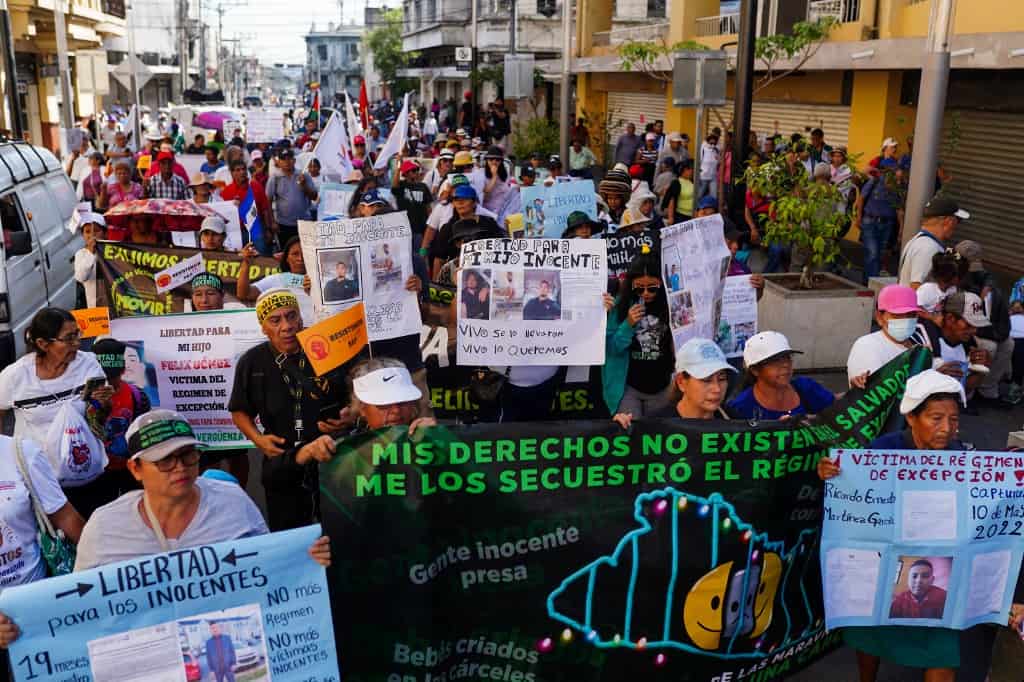Around 2,000 Salvadorans demonstrated this Sunday in San Salvador to demand the release of their family members “unjustly” imprisoned during President Nayib Bukele’s anti-gang war, in effect since 2022. Displaying photos and banners of the detained, the demonstration began at Cuscatlán Park in the west and ended in the capital’s center without incidents.
“I ask for freedom for my husband and son, because they have been captured unjustly, as they owe nothing, they are not criminals, nor are they delinquents,” said Sebastiana Avelar, a 54-year-old housewife. Sebastiana’s husband, Marcos Avelar (57), was captured on July 29, 2022; and her son Manuel Ernesto Avelar (24), on March 13, 2023.
“It’s desperate” living without “knowing how they are,” she said, as visits to prisons are prohibited. In response to an escalation of homicides, on March 27, 2022, Bukele began a “war” against gangs under a state of exception that allows arrests without judicial orders and under which 84,260 people have been detained since then.
Bukele said on November 12 that of the total detained, about 8,000 innocent people were released, but according to Attorney General Rodolfo Delgado, “they are [free] with precautionary measures” while their cases proceed. “The state of exception is no longer to combat gangs, the regime is to subdue the people, so they don’t demonstrate for their demands,” said Samuel Ramírez, coordinator of the Movement of Victims of the State of Exception (MOVIR). After the crusade against gangs, homicides were drastically reduced.
Until 2022, El Salvador was considered one of the most violent countries without armed conflict in the world and has since reduced homicides to historic lows (1.9 per 100,000 inhabitants in 2024). However, organizations like Human Rights Watch and Amnesty International have denounced “indiscriminate arrests” and more than 350 deaths in state custody.
The protesters also rejected the reactivation of metal mining after Congress approved a controversial law in December. “What will mining mean: displacing large numbers of people first, deforesting the territory, then using large amounts of water that we don’t have,” declared environmentalist Ricardo Navarro.






